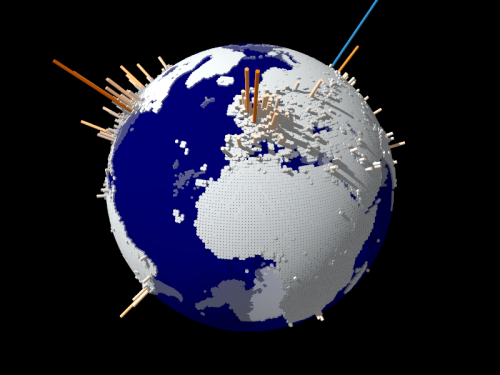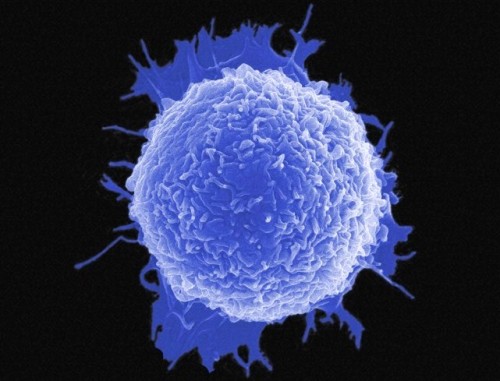Global GDP Growth: An IMF and World Bank Racket

NEWS JUNKIE POST
Feb 6, 2013 at 2:21 pmIn the three years since Haiti’s earthquake, the unemployment rate has climbed from 80 percent to more than 85 percent. Simultaneously, the gross domestic product (GDP) has gone from a five-percent decline in 2010 to a two-percent growth in 2012, according to a World Bank report released on January 15 and titled “Global Economic Prospects – January 2013: Assuring Growth Over the Medium Term.” The report predicts another six-percent growth in Haiti’s GDP for the current year. This rosy picture closely matches the forecasts for other developing nations of Latin America and the Caribbean, as well as countries in South Asia and Africa: especially those that have suffered wars and other disasters. Libya, for example, represents a smashing success, with a 2012 GDP increase of 108 percent. By contrast, the growths of Japan and other developed countries, as measured by their GDP, have stagnated at values below three percent and sometimes negative.
If you are shaking your head, thinking there must be a mistake in the World Bank’s computations, think again. They are quite correct. The problem lies, not in the calculations of GDP, but in their use to gauge economic growth and the assumption that a country’s GDP correlates with its standard of living, quality of life, and even happiness of its citizens. GDP may be calculated in at least three ways, and in every case it amounts to all the money that changes hands in an economy during one year. One common approach is to define GDP as being equal to: private consumption + government spending + gross investment + (exports – imports).
Inspect this simple mathematical expression for a moment, and you will see its implication: namely that, with the exception of imports, everything gets added to the GDP, and nothing ever gets subtracted: not even government debt! A country’s GDP should not be confused with its net worth, which is never reported. Notions such as the subtraction of red ink from black ink (or debit from credit) are not for the high-flying technocrats of the World Bank and International Monetary Fund (IMF), and certainly not for today’s heads of state who come from their ranks or follow their lead, but for pesky little people, like the world’s certified public accountants and small businessmen and women, who insist on their economy being grounded in reality. A country’s GDP merely measures the flow of money through its territory. So long as money changes hands in transactions that involve banks, the GDP rises. The IMF and World Bank should rightly be delighted with GDP growth. It is a marvelous measure of the wealth of bankers.
Six things that are bad for GDP
1. Home ownership. If you choose, for example, to accelerate the payments on your house so that you own it free and clear and need no longer pay interest and a mortgage to the banks, this is terrible for GDP, although from a practical viewpoint, your decision is quite excellent for your quality of life. Indeed, home ownership is generally bad for GDP.
2. Unpaid labor. If you do the day-to-day repairs to your own house, as many people do, or you work in your home in child rearing and housekeeping, as many of the world’s women do, or you care for your elderly parents, or grow a vegetable garden, such actions are awful for the GDP. By contrast, if you substitute your unpaid work for your family with the paid labor of a professional class including babysitters, preschool teachers, restaurant staff, dry cleaners, nursing home workers, supermarket staff, etc., you grow the GDP. In other words, family cohesiveness subverts GDP growth. The same is true for altruistic volunteerism.
3. Barter. When you trade goods or services, and you and the other party both improve your standards of living, if the solution to your problems preempts the purchase of an item or service, then you hurt GDP growth. By contrast, if for example your car breaks down, and you borrow tens of thousands of dollars from a bank to buy a new one, this is great for GDP. Suppose further, that you are sold a lemon that runs for only one day, your unwisely spent money helps the GDP just the same.
4. Government services. Suppose your city government used to supply your drinking water, for example, and this service gets cut and you wind up having to buy bottled water more expensively; this is fantastic for GDP. Indeed, any payment for things that you used to get for free helps the GDP.
5. Good luck. An absence of disaster in your life is anathema to GDP growth. If you suffer the ravages of a near-fatal disease, a war, an earthquake, a tsunami, or a hurricane, and you must spend enormous sums on medical care, reconstruction of your house, etc., the GDP grows. Indeed the GDP will grow as long as money is spent and regardless of any improvement to your health or any other aspect of your situation. Losses from disasters are not subtracted from GDP. Nature’s services are not added to GDP. On the other hand, the funds borrowed to deal with a disaster nicely augment the GDP.
6. Population decline. Currently humans consume more than 40 percent of Earth’s primary productivity: all the food that there is on the planet. One might therefore reasonably assume that a drop in the human population would improve the quality of life for all by increasing the amounts of the available foods and other consumables, as well as reducing our wastes. This, however, would also decrease the GDP, since there would be fewer consumers. Indeed, the world’s GDP growth is driven in large part by nothing more than increased population.
The build up of Haiti’s GDP by agencies such as USAID, the Interamerican Development Bank, European Union, World Bank, and IMF is part of a project to force the country into a neocolonialist’s mold. For much of the last 200 years, Haiti enjoyed a lively agricultural economy run by small farmers. This economy was based, for the great majority of citizens on the barter of goods and services, ownership of modest homes, cooperative farm work by communities without exchange of money, and performance of other unpaid labor by members of extended families for each other. When Haitians lived on organic foods that were in season, safely drank the waters from their springs and rivers and were, for the most part, self-employed as small entrepreneurs, the GDP was negative. When several of Haiti’s debts were forgiven immediately after the 2010 earthquake, the GDP was negative. But in the last two years, Haiti has had enough additional bad luck to grow its GDP by more than seven percent. The country’s agriculture has crashed, and it must import nearly all its food. The bankrupted farmers have been turned into wage slaves for a growing number of sweatshops. An epidemic of cholera, increased hunger and homelessness, together with a simultaneous dismantling of the municipal water systems of the country’s major cities have caused the health of Haitians to plummet.
Currently, most people who enjoy decent housing or employment in Haiti are foreigners who serve “non-governmental” organizations (NGO). The new World Bank President Jim Yong Kim, for example, fittingly began his career as a co-founder of the well-heeled NGO Partners In Health (PIH). Mr. Kim visited Haiti on November 6-7 to finance projects including a reconstruction of the country’s sabotaged electrical grid; this project will enable the appropriation of massive areas of land as well as require that the country’s electric power be subsumed to that of the Dominican Republic. Fantastic for GDP growth, but hardly helpful for Haitians. GDP is the stuff of vultures.
Predictions in the World Bank report of a three-percent growth in global GDP and more substantive growths for the GDP of countries like Haiti, Mali, Niger, and the Ivory Coast should give one a chill, since such forecasts rely on expectations of continued overpopulation, the associated ravages of anthropogenic climate change, and even civil wars. Against this, we find the idea of a steady-state economy as something to strive for, and notions of eco-socialism and “decroissance” (degrowth) as routes to this improved economy. As Edward Abbey has noted: “Growth for the sake of growth is the ideology of the cancer cell.” It is the duty of those who care about the quality of life on Earth to undermine GDP growth in every way possible.
Editor’s Note: Photographs one, two and four by Anders Sandberg. Photographs three, five, six and seven by Wellcome Images.
Related Articles
- January 12, 2011 Haiti: Slow Recovery In The Misery Of Tent Cities, Cholera And Political Vacuum
- January 11, 2013 Haiti: Where Demolition and Exploitation Pass for Reconstruction and Development
- May 30, 2013 India’s Shameful Class Divide
- November 24, 2012 USAID: The Soft Arm of Imperialism
- May 26, 2015 Humanitarian Imperialism: Aid as a Trojan Horse
- November 7, 2012 Is Eco-Socialism a Viable Option to Global Disaster Capitalism?



















2 Responses to Global GDP Growth: An IMF and World Bank Racket
You must be logged in to post a comment Login